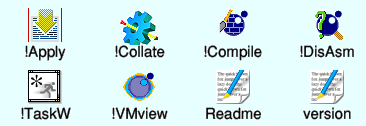
Chunks
A Lua program consists of chunks, units of compilation.
A chunk may contain subchunks within it, so that they form a
tree-structure. The whole program constitutes a chunk,
the global chunk. All the other chunks are
subchunks of it.
Variables can be declared local to a chunk.
Variables occurring in a chunk which have been declared local
in an enclosing chunk are referred to as upvalues
of the chunk. But note: a variable local to
the global chunk is not quite the same as a global variable,
(see the next section). Local
variables are stored on the stack and are fast to look up.
Always use local variables where possible.
A block of code can be turned into a chunk by being enclosed
between the reserved words
do and end. The body of a function
constitutes a chunk and its parameters are automatically local to it.
Similarly the bodies of looping and conditional structures form
chunks, and the loop variables are automatically local. Code
in a separate file (compiled with loadfile) or in a
string (compiled with load) constitute chunks. They
are compiled as functions of an unknown number of variables.
They can contain return statements.
To understand a program it is important to recognize its
tree-structure of chunks, and to identify the
name-space of each chunk. This explains how
information flows, or is concealed, from one chunk to
another.
 Clicking Select on !Rlua's iconbar icon will open the Utilities directory.
Doubleclick a utility to put it on the iconbar. Dragging a program onto
!DisAsm's iconbar icon will display its virtual machine instructions,
while !VMView will show these intertwined with the text of the program.
You may find this instructive for seeing the chunk structure of the program.
Clicking Select on !Rlua's iconbar icon will open the Utilities directory.
Doubleclick a utility to put it on the iconbar. Dragging a program onto
!DisAsm's iconbar icon will display its virtual machine instructions,
while !VMView will show these intertwined with the text of the program.
You may find this instructive for seeing the chunk structure of the program.